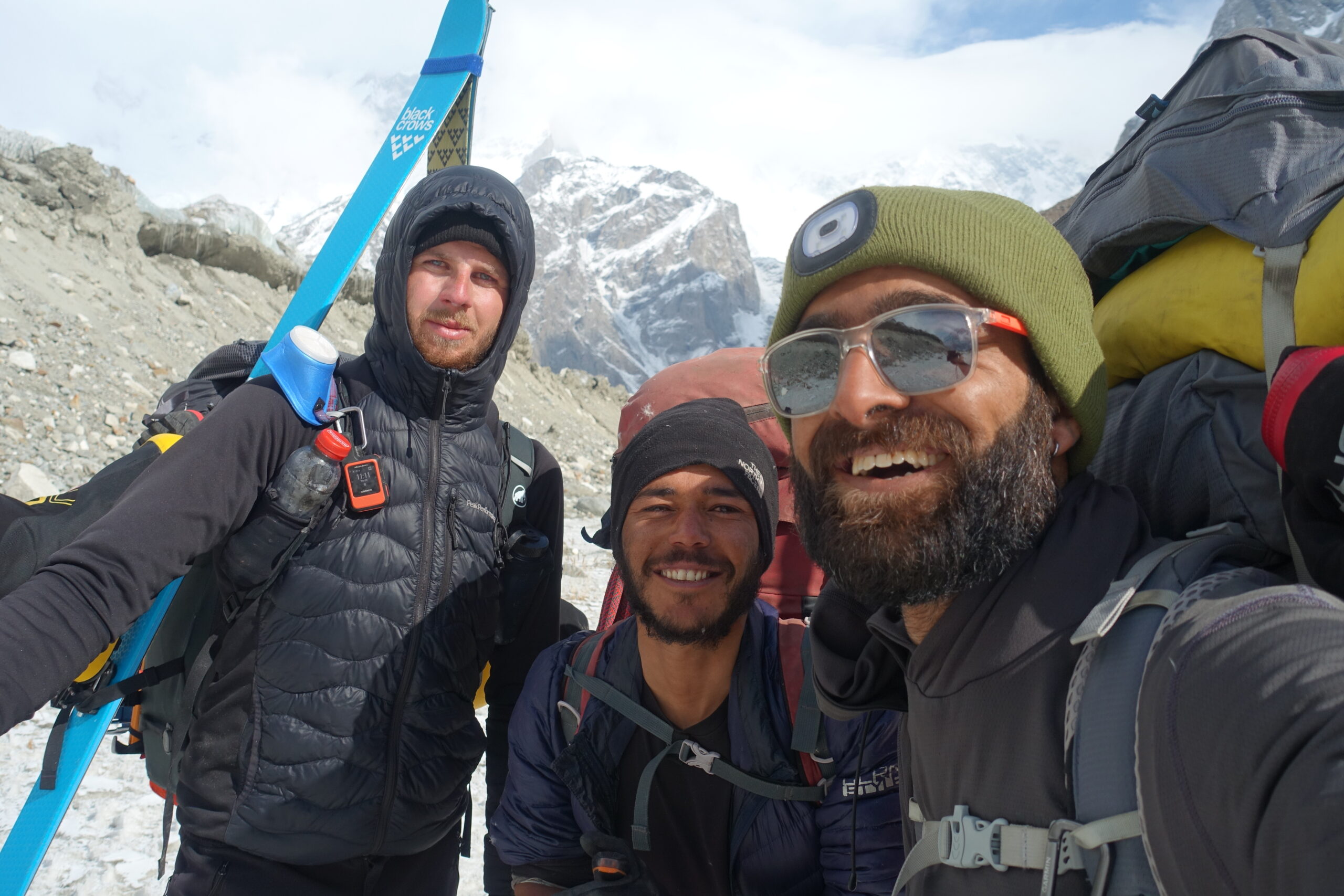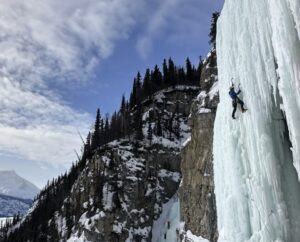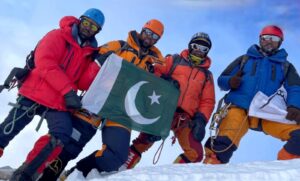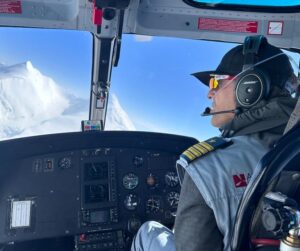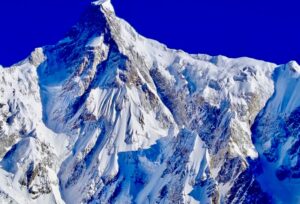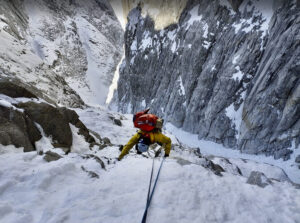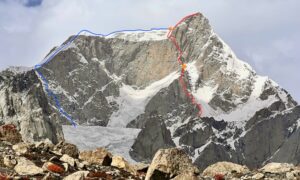A winter attempt on a Karakoram giant passed unnoticed until one of the climbers, Yanick Ueltschi of Switzerland, contacted ExplorersWeb to report on his midwinter expedition to Batura I (7,795m).
Ueltschi teamed up with two local climbers from the Hunza Valley, Hassan Aljabbal and Sohail Sakhi.
“The plan was to make an attempt from the south side, like almost all previous expeditions, and to go as high as possible,” Ueltschi said. “We also just wanted to spend time together in the mountains, and the summit was part of the plan. We didn’t want any support like porters or fixed routes.”
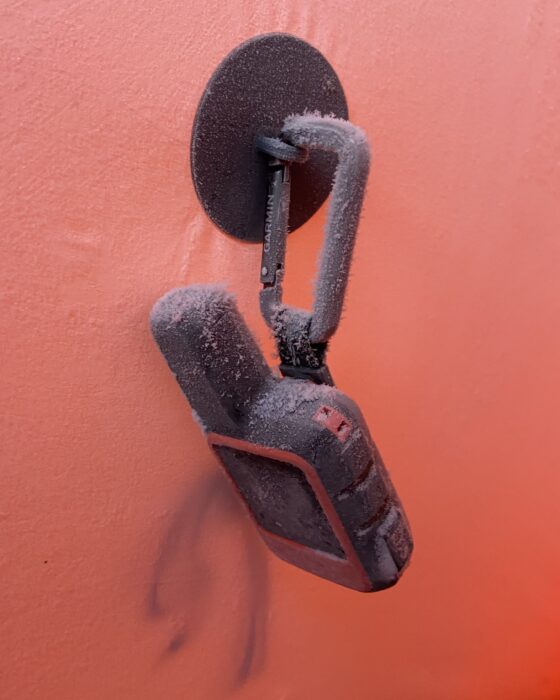
Winter in the Karakoram is typically harsher than in Nepal. Photo: Yanick Ueltschi
New Year in the Karakoram
There was no need for a permanent base camp. After each of their three acclimatization rounds, the climbers simply returned to Aliabad village, three days away.
On the first occasion, they spent New Year’s Eve at Shandar, at 4,000m. They checked conditions on the mountain and scoped out their planned route with satisfactory results. The trail-breaking through deep snow on the way to the face looked hard, but the route looked safe from avalanches.
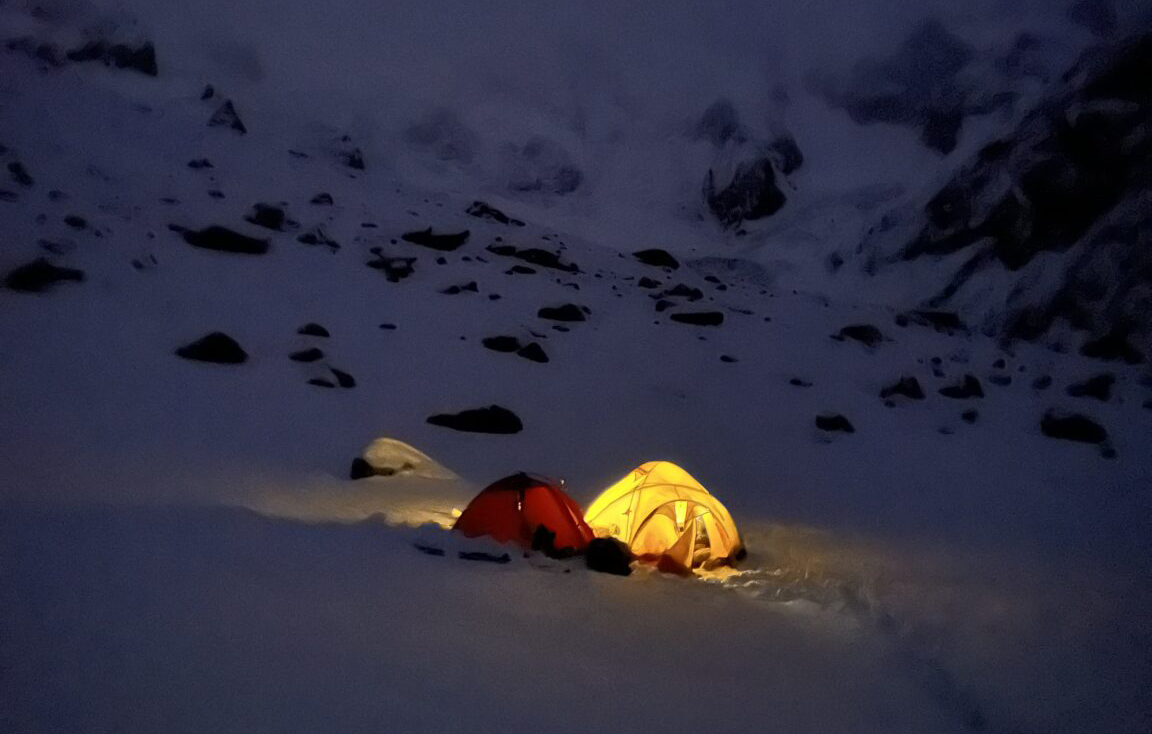
Advanced Base Camp. Photo: Yanick Ueltschi
On the second rotation, the climbers pitched an Advanced Base Camp at the Batokshi Glacier, 40 minutes away from their first lookout.
On skis, Ueltschi made a three-day trip to 5,969m, where he spent a night.
“Fun fact,” Ueltschi said. “Someone (possibly a hunter) took my sleeping bag, which I left in camp after the first rotation. So I spent the nights with only my down parka and pants. Pretty uncomfortable in temperatures that plummet to -47°C!”
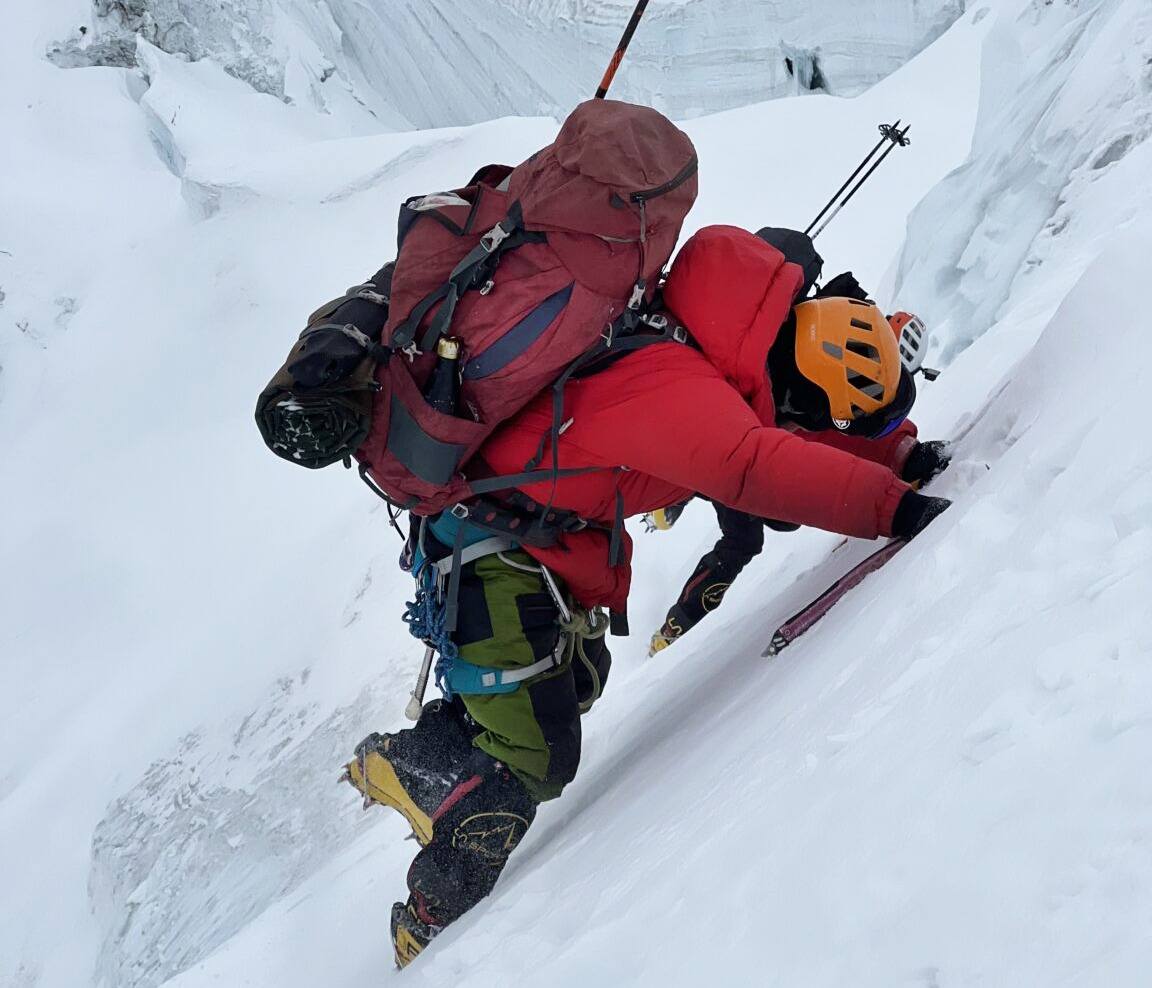
One of the Pakistani climbers in deep snow. Photo: Yanick Ueltschi
Final push
The final attempt started on January 21, “with a good weather window ahead and with a borrowed sleeping bag for me,” Ueltschi said.
Planning to spend two weeks on the mountain, the climbers crossed the sketchy Batokshi Glacier in deep snow and reached Ueltschi’s previous high camp.
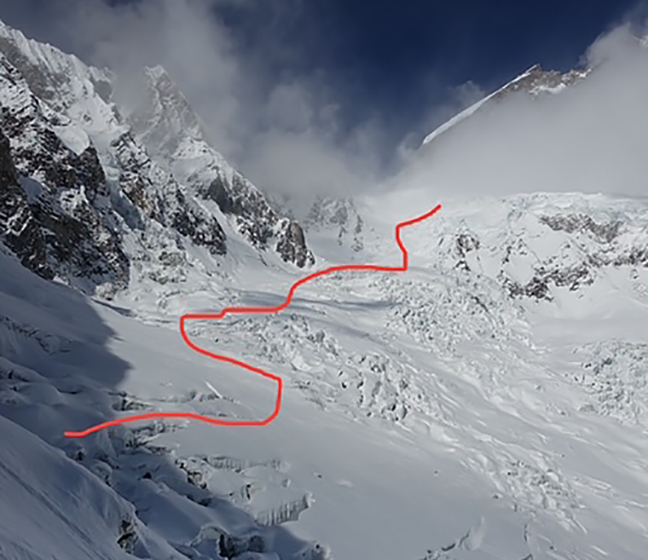
The route across the Batokshi Glacier. Photo: Yanick Ueltschi
Ueltschi skied ahead, breaking trail for the Pakistanis. They eventually reached a high plateau that led to the headwall of Batura’s south face, which they were supposed to traverse in order to gain the ridge.
“The conditions on the ridge looked good from afar,” Ueltschi said. The ~40° degree steep slope until the rocky part would have been quite safe and not technical.”
However, the team encountered a major problem they hadn’t anticipated: the plateau they had to cross was heavily crevassed.
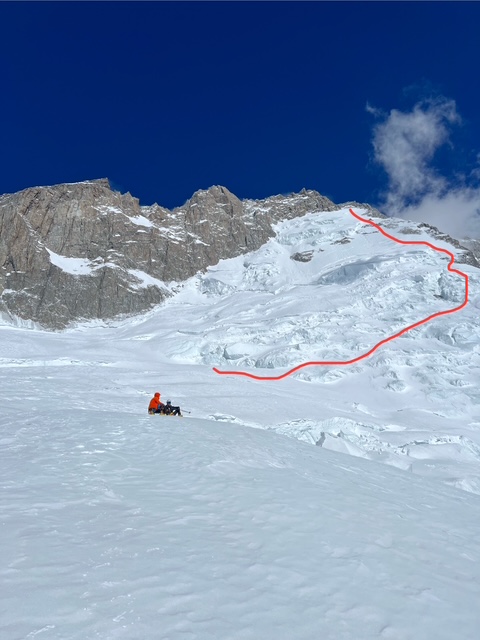
The planned route across the south face of Batura I toward the ridge. Photo: Yanick Ueltschi
Gut feeling
“We had to zigzag a lot on the plateau. Looking back, we took a lot of risks,” he said. “Once at the planned campsite, there was no obvious spot to pitch our tents. At this point, I also had a very bad feeling about the traverse of the wall. It alternated between seracs and very deep snow. That, plus not-so-optimistic forecasts, made us retreat to our camp at 6,000m.”
The next day, they woke up to windy weather.
“A hundred meters above us, there was a total whiteout,” Ueltschi said. “We packed everything and headed down. After 14 days without seeing a single avalanche, one struck while we climbed down and missed us by five minutes. The mountain really wanted us to leave.”
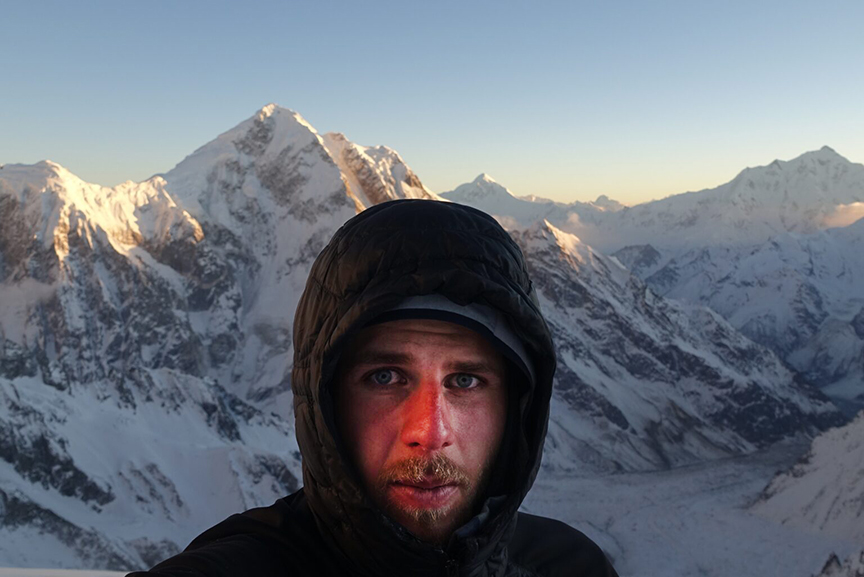
Yanick Ueltschi during the climb.
A Polish team led by Piotr Tomala previously attempted Batura I, also known as Batura Sar, in the winter of 2020, but constant snowfall eventually turned them back.
